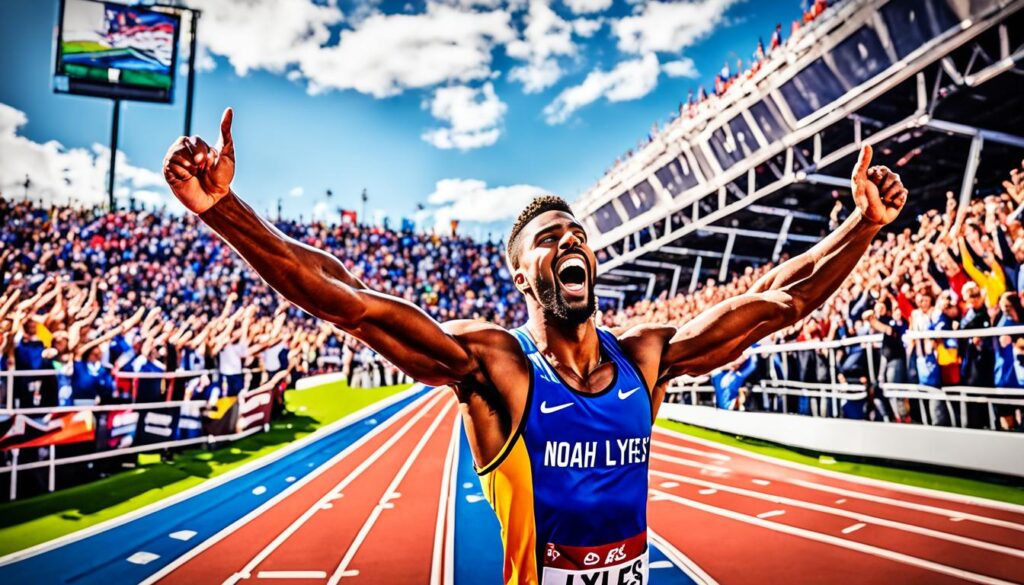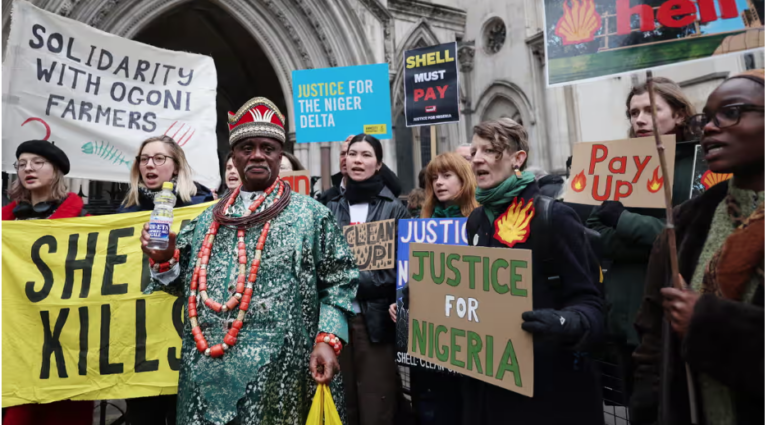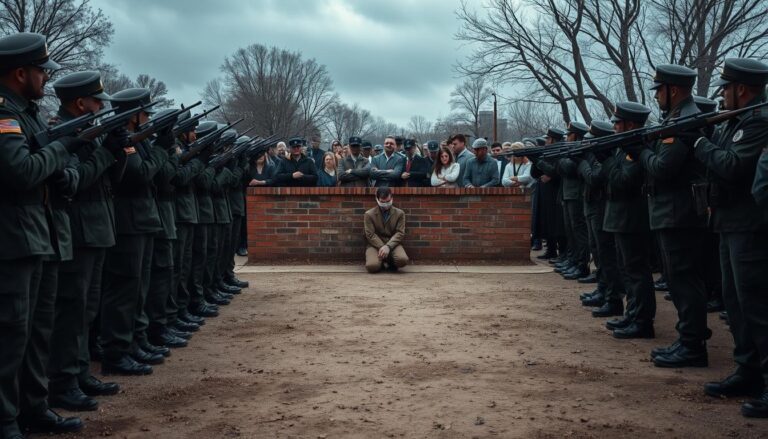Noah Lyle's 200m Race with COVID: Public Reaction
“The greatest glory in living lies not in never falling, but in rising every time we fall.” – Nelson Mandela. This saying is very true for Noah Lyles. He ran in the 200 meter race during the COVID-19 pandemic. He was an athlete who decided to race even though he had COVID-19. This story will look at how people felt about this big moment in sports.
Key Takeaways
- Noah Lyles made headlines when he chose to compete in the 200 meter race despite a positive COVID-19 test.
- The public’s reaction was mixed, highlighting concerns over health and safety.
- Fellow athletes and sports analysts weighed in on the implications of Lyles’ decision.
- The COVID-19 pandemic has dramatically altered the landscape of competitive sports.
- This incident raises questions about the integrity of competition amid a global health crisis.
Background on Noah Lyles and His Achievements
Noah Lyles is a famous American sprinter, known for his skills in the 200 meter race. He has a strong sports background. He has won big, including an Olympic gold medal. His story in running history shows how he overcame tough times.
Lyles became famous after getting bronze in the 200m at the Tokyo 2021 Olympics. His amazing run also won him the gold in the 100m at the Paris Olympics. This made him one of the top athletes around.

Even with challenges like asthma and mental health issues, Lyles kept going. He wants to win four gold medals at the Paris Games. He aims to win in the 100m, 200m, 4x100m, and 4x400m races. This goal puts him with the greats of sprinting, showing how big his Noah Lyles achievements are in Olympic athletics.
| Event | Year | Outcome | Time |
|---|---|---|---|
| 100m | 2024 | Gold Medalist | 9.79 seconds |
| 200m | 2021 | Bronze Medalist | 19.70 seconds |
Noah Lyles’ career shows his big wins and how he inspires others. He’s more than just a track star. He shows us how to beat challenges and make a lasting impact in athletics.
The Impact of COVID-19 on Athletes
The COVID-19 pandemic changed sports forever. Athletes had to put their health first as cases went up. They had to follow strict rules to stay safe.
Athletes like Noah Lyles faced a big challenge. They loved to compete but were scared of getting the virus.
Many athletes felt the pandemic effects on athletes. They got sick and felt lonely and unsure. Training changed a lot. Athletes had to work out in new places and follow strict health rules.
There were big talks about if sports events were fair. Some athletes got sick before big events. This made people wonder if it was safe for them to compete.
Organizers worked hard to keep athletes safe. They made sure their health rules were strong. This was to protect every athlete.
The 2020 Tokyo Olympics had no fans. This showed how tough sports were during the pandemic. Athletes had to keep doing well despite the hard changes.
The COVID-19 impact on sports was huge. It made athletes think about what was most important in their world.
Noah Lyles Competing in the 200m with COVID-19
Noah Lyles decided to run in the 200m final even though he had COVID-19 two days before. This choice sparked a big debate about athlete health and racing during a pandemic. His story was a big topic at the Paris 2024 Olympics.
Details of Lyles’ Condition Before the Race
Before the race, Lyles had symptoms like chills, a sore throat, and was very tired. He even had a fever of 102 degrees. But he still wanted to run. He had set a personal best before and wanted to push his limits.
He ran the 200m in 19.70 seconds and got a bronze medal.
Medical Supervision During the Race
Lyles was watched closely by doctors during the race. Team USA had a special system to keep an eye on him. Doctors were always with him, making sure he was safe while racing.
The leader of Team USA praised Lyles for his hard work and following the doctor’s advice. This let him run even with COVID-19.
Public Sentiment Surrounding Lyles’ Decision
Noah Lyles decided to run even after testing positive for COVID-19. This choice sparked both support and criticism. Fans and athletes shared their thoughts on social media, showing many different views.
Fans’ Reactions on Social Media
People on social media felt many things about Lyles’ choice. Some saw him as brave and strong. They admired his will to keep going.
Others worried about his health and the health of others. They thought it was risky to run while sick. This led to talks about right and wrong in sports.
Opinions from Fellow Athletes
Athletes had different opinions too. Some commended Lyles for his bravery and dedication. They saw it as showing true sportsmanship.
But, others had doubts. They wondered if it was right to compete when sick. This showed how hard it is for athletes to make choices during tough times.
Comparing Responses: 2024 Paris Olympics vs. Tokyo 2021
The Paris 2024 vs Tokyo 2021 Olympics showed big differences due to the pandemic. In Tokyo, athletes had to follow strict Olympic pandemic protocols. They had to stay in quarantine and wear masks all the time. This made the games feel very strict.
But in Paris, things changed. The rules were not as strict. Athletes could still compete even if they had COVID-19 symptoms. This change let athletes like Noah Lyles show their skills.
Looking at both Olympics, we see how society and pandemic rules changed. Paris’s flexible rules might show a new way athletes deal with COVID at sports events.
| Aspect | Tokyo 2021 | Paris 2024 |
|---|---|---|
| Mask Mandate | Strictly Enforced | Recommended, but less strict |
| Quarantine Requirements | Mandatory | Limited for symptomatic athletes |
| Public Sentiment | Concerned | More relaxed |
| Focus on Health | Top Priority | Prominent, but flexible |
How People Felt About Noah Lyles Competing in 200 with COVID-19
Noah Lyles decided to run the 200 meters even though he had COVID-19. This made people talk a lot. They were worried about his health and safety. They thought it could be bad for sports.
People were scared Lyles might spread the virus. After the race, he needed medical help. This made everyone more worried about athletes getting sick.
Concerns about Health and Safety
Many were worried about Lyles running with COVID-19. Sarah Hirshland, the USOPC CEO, was okay with it, but not everyone agreed. Lyles has asthma and anxiety, which made people even more worried.
At least 40 athletes in Paris faced health risks too. This made people question if safety rules were good enough.
Mixed Opinions on Competitive Integrity
Some praised Lyles for his bravery, but others thought he broke the rules. Athletes and fans had different views. They talked about how Lyles’ decision made them think about fairness in sports.
Lyles had to think about his goals and health risks. This started a big debate about what’s right for athletes in the future.
Medical Protocols for Competing Athletes
Lyles decided to race while sick. He got a full check-up from medical personnel and was watched during the race. This was to keep him and others safe.
At the Paris Games, there were no special COVID-19 rules. Instead, they focused on general health. The medical team’s advice let Lyles race. He followed isolation rules after testing positive, but there were no strict guidelines.
Unlike the Tokyo Olympics, where Lyles was under strict rules, Paris was more relaxed. Athletes like Lyles could move around, but they wore masks during warm-ups. This showed the ongoing debate on athlete health protocols as we learn more about the virus.
The Role of Team USA in Noah Lyles’ Decision
Team USA was key in Noah Lyles’ decision to run at the 2024 Paris Olympics, even after he tested positive for COVID-19. The U.S. Olympic and Paralympic Committee and USA Track and Field made rules for him. They kept in touch about COVID-19 rules and checked on Lyles to see if he was ready to race.
Lyles thought about the health rules and advice from experts when making his choice. Being an athlete with a positive test was tough, but USA Track and Field helped a lot with staff and checks. Lyles decided what was best for him, thinking about his goals and the risks.
Lyles had symptoms before the race but felt supported by Team USA’s rules. Their support showed how important it is for athletes to make their own choices during the pandemic. The rules they made created a safe place for athletes to shine, showing Team USA’s support for athletes in tough times.
Reactions from Sports Analysts and Commentators
Noah Lyles’ recent performance has caught the eye of sports experts. They talked about sportsmanship and the tough conditions athletes face. They praised Lyles for his bronze medal in the men’s 200m, despite his health issues.
Insights on Sportsmanship and Ethics
People are talking a lot about Lyles and sports ethics. Some say he was brave to race while sick. Others worry about how it affected other athletes. They talk about the tough choices athletes make when they’re not fully healthy.
- Analysts praised Lyles’ skills but wondered about his decision to race.
- They worried about the risk he might have posed to other athletes.
- Most agreed that health should come first in sports, even if it means not racing.
Lyles’ race made us think more about athletes’ health and competing well. It made us look at how we protect athletes in big events.
| Commentator | Opinion | Focus Area |
|---|---|---|
| Jim Brown | Supportive of Lyles’ determination | Personal drive |
| Susan Lee | Concerned about athlete safety | Health risks |
| Michael Chen | Emphasised ethical implications | Competitive integrity |
These views show the deep talks on sports ethics and health today. Lyles’ story highlights the tough spots athletes are in.
Noah Lyles’ Performance: Highlights and Challenges
Noah Lyles shone at the Olympic Games, showing great strength and big challenges. He won a bronze medal in the 200m race, even with COVID-19. This shows his amazing skill and his strong will to beat the odds.
His Olympic results are a story of winning against hard times. Despite feeling sick and stressed, Lyles ran his best race ever. This was a big moment for him, and people all over the world cheered for him.
Right after the race, Lyles got very tired and fell. This showed how hard it is for athletes to compete when they’re not feeling well. Lyles’ story at the Olympics teaches us about the tough road athletes take to reach their goals.
The Aftermath: Lyles’ Future in Athletics
Noah Lyles won a bronze medal in 19.70 seconds, despite being sick with COVID-19. This shows his amazing talent and the tough challenges athletes face after the pandemic. He had a high fever, showing how hard he must work to get better for future races.
Lyles didn’t win three medals as he hoped at the Olympics. But he’s still young at 27 and has a bright future. He plans to compete in the 2028 LA Olympics. His story makes us think about how COVID-19 affects athletes and their health goals.
Lyles’ story is like many athletes dealing with COVID’s aftermath. Sports are changing their health rules, and athletes are focusing on staying well. We’ll keep talking about Lyles and how getting over COVID is key for top athletes.







